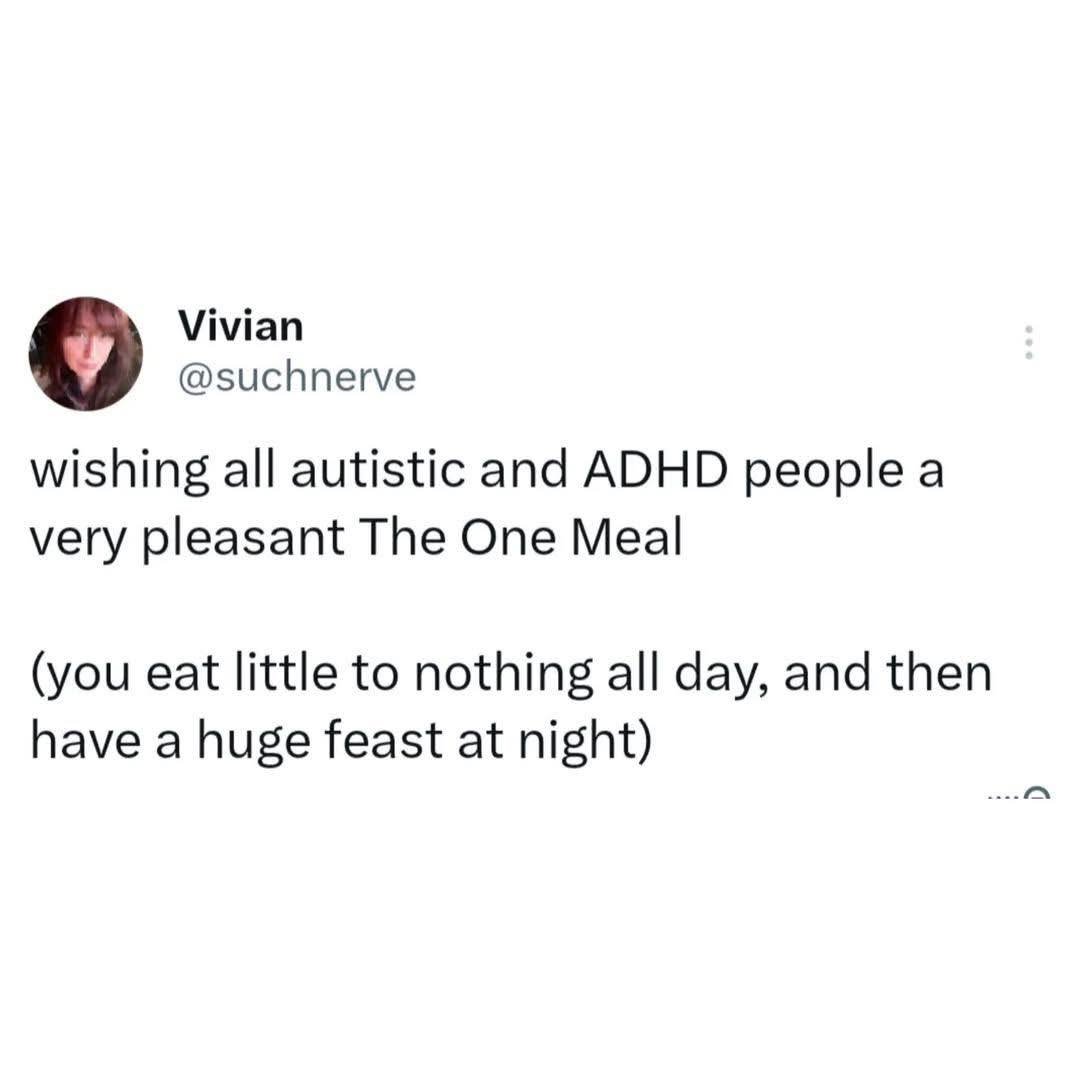this post was submitted on 17 Jan 2025
660 points (98.0% liked)
ADHD memes
8698 readers
1540 users here now
ADHD Memes
The lighter side of ADHD
Rules
Other ND communities
- !adhd@lemmy.world - Generic discussion
- !ausomememes@lemmy.dbzer0.com
- !autism@lemmy.world
- !autisticandadhd
- !neurodivergence@beehaw.org
founded 2 years ago
MODERATORS
you are viewing a single comment's thread
view the rest of the comments
view the rest of the comments

That study is more focused on weight gain and not really about the effect on sleep. Sleep is mentioned, but in reference as a co-contributer.
I've done OMAD (eat at night) for close to 15 years and have always been on the lower end of my BMI ratio and other than walking between buildings at work, no real exercise. To gain any weight, I would have to eat 4,500-5,000kcal/day. My sleep has also always been the same throughout my life regardless of eating style. (it may have even improved with my eating style)
I'm quite happy that's working well for you. Nutrition is pretty highly personal and different people will thrive on different diets - the study I linked above would be relevant to weight, quality of life and quality of sleep over the long term - and its designed to measure general trends in the population which may differ from individuals.
If your approach is good for you that's excellent - but, generally speaking, fasting with a large evening meal is worse for most folks than fasting with a large morning or midday meal.